THE OVERWHELMING PROOF: Francis Bacon Wrote Shakespeare
Child Molester, Freemason, First Modern Scientist, Spy, Patron Saint of The Enlightenment, Birth Of An Empire
John Aubrey [author of Brief Lives] on information from Thomas Hobbes and others stated that “Bacon was a ‘paiderastos’ who ‘had his Ganymedes and his favorites’. This was well known at the time.” Hostage To Fortune, 1990. Lisa Jardine and Alan Stewart, pg 464
“In 1576 [at the age of 15] Bacon…went abroad with Sir Amias Paulet, English Ambassador to Paris. For the next three years…he performed diplomatic [espionage] tasks, delivering letters to England for Walsingham and Queen Elizabeth…[Bacon] describes a Bi-lateral cipher he devised during this time…“for it has the perfection of a cipher, which is to make anything signify anything.” Greatest Britons and MIT Press Reader
New Atlantis (1626): The Birth Of Scientism and Technocracy
The Shakespeare Authorship Controversy has raged close to 200 years now over the question Who really wrote the ‘Shakespeare’ plays? Answering that question is of utmost importance: the Shakespeare plays have buried themselves into the subconscious of the entire world now, existing as modern myths, exerting an enormous, outsized hidden influence at the very deepest levels of our collective awareness- at the level where we tell ourselves stories. I (and many others) have gathered an enormous amount of evidence that Sir Francis Bacon, Baron Verulam, was the secret author of the plays of William Shakespeare. In this essay I provide much of that overwhelming evidence. I am further proposing that the Shakespeare plays are part of an elaborate operation that includes Bacon’s creation of modern Freemasonry to facilitate the popularity of the plays as well as the growth of “modern Science”, the origin of which he is widely credited (along with the Enlightenment era). All three, Shakespeare, Science and Freemasonry are designed as a group, the goal of which is to form a vast Empire of the mind, starting from The Globe Theater, London. Bacon was the first transhumanist and the first advocate of technocracy, the man who said “Knowledge is power”. He meant it. This is the strangest science fiction story ever told, except that it is science fact.
Bacon is on the right on the frontispiece to the History of The Royal Society (1672) the world’s first ever scientific body. Note preponderance of Masonic symbolism
(If you wish to skip the introduction for the hard evidence of Bacon was the author of the Shakespeare plays please scroll down to “Preliminary Evidence: For Bacon: The Timelines Fit”, or further down to “The Concrete Evidence That Bacon Wrote The Plays”.
Welcome To The Show
Entire libraries are devoted to Shakespeare. American children spend more time learning Shakespeare in high school than they do learning the Constitution of The United States, how money works on Wall Street or the history of their local communities. It’s completely bizarre. Every college in America offers courses, if not an entire degree program, in Shakespeare. One can get a PhD in Shakespeare studies not only at Oxford UK, but at Brown University or UC Davis. A PhD in Shakespeare! All the biggest Hollywood stars do Shakespeare on film and stage. It’s impossible to get through the day without hearing a quote from one of the plays, or using or hearing a word coined and created in one of the plays. And therein lies a tale: the tale of a hoax that veiled a truth to control perception, so profound and successful a hoax that it has altered the very way that we think and feel. That’s the power of Hamlet, Macbeth, Richard III, Richard II, The Tempest, Othello. A performative hoax to control our dreams. Such is is the power of language, the power of suggestion, and the power of theater when combined with a secret in-group, Freemasonry, that knows the hidden language buried in the plays. Ladies and gentlemen, welcome.
The farcical idea that William Shakespeare of Stratford-upon-Avon, the uneducated dealer in barley, wool and real estate, who did a little acting on the side, who owned no books and never went to school, who wrote no letters nor received any letters, whose mother and father were illiterate and whose own children were illiterate, somehow, despite these verifiable facts, managed also to write dozens of plays of such enormous complexity and emotional pull that thousands upon thousands of books have been published about them, is an affront to the dignity of anyone who regards the truth as important.
If it was known that the plays were written by one of the most highly educated men of all time, a man who helped found British Intelligence, a consummate insider operating at the very highest level of Elizabethan/Jacobean society and government, a man who created modern Science, a statesman, barrister, attorney general and even Lord Chancellor, then the plays would have never attained the great power that they have over us, a power that was born from the mystery engendered by their remarkable ‘foundation myth’ origin story of an English nobody from the hinterlands named Shakespeare, a bloke blessed by a pure rustic deeply poetic genius, producing brilliant plays of a type never before seen, obviously by divine guidance.
Thomas Banks: Shakespeare attended by Painting and Poetry c 1789
Why They Hid The Author
If Lord Francis Bacon and crew had been known as the author, the plays would have been seen immediately for what they really are: audacious propaganda for the Tudor regime, for the superiority of the elite, and for the superiority of England in particular. Knowledge of Bacon as the author removes a veil to reveal the truth: the plays are building stones of Empire, an Empire to be constructed first in the minds of men and then in ships full of soldiers set sail with portable lodges of Masons and trade goods, cannons and slaves to span the globe, becoming today’s Corporate Empire of transhumanist surveillance Scientism, the Empire Of the Lie. Bacon saw to it all and he had a hand in all of it, not only in the Shakespeare plays and poems, but in every aspect of Empire, from finance to insurance to sitting on the board as a lawyer and propagandist for the first successful American colony-The Virginia Corporation that settled Jamestown. That’s what The Tempest is about among other things, as Baron Verulam always wrote on multiple levels at once. Everyone knows Prospero is the Playwright, the one in complete control, gaining all his magic power from books.
Step into to the theater of world domination, ladies and gentlemen. Find yourself a chair. This is the strangest story never told.
Eventually, as the creator of modern Science and the writer of the first transhumanist manifestos Fama Fraternitatis and New Atlantis, where Bacon prophesied Scientism as the final tool to be used by the ruling elite for Empire. Hello global plandemic, hello catastrophic climate change, all the world’s a stage, Shakespeare is everywhere.
The evidence I will shortly present, gathered by dozens and dozens of truth seekers for decades now, will prove to you beyond all reasonable doubt that the hoax of Stratford Will was created and managed by philosopher Francis Bacon, author of many other books including Essays and The Idols Of The Mind. Bacon was the first real master of the psychological, the logic of the psyche and logic of the soul, the first man who figured us out for the sake of power, the man who gained a new type of knowledge based on an extraordinary learning fueled by and fueling his outsized, fantastical ambition. He gleaned knowledge of the individual and group soul, from entire nations down to to single lonely misfits, from the wealthy nobility to the poorest commons.
The Shakespeare plays, the writing of which sourced and coalesced this knowledge, were to become elevated into global Myths that shape our days and lives, shape the fabric and fate of societies, because of the hidden nature of their true author(s) and the hidden content within of plays.
“Knowledge itself is power” is Francis Bacon’s most famous quote outside of the theater. He meant it imperially and he proved that it was true. Why knowledge is not love, or compassion or unity or beauty is because those sorts of things are not what Francis Bacon wanted. Francis Bacon had a disease, an all-too-human disease: he wanted power absolutely. And diseases are contagious in the theater.
“The action of the theatre… was carefully watched by the ancients…. and, indeed, many wise men and great philosophers have thought it to the mind as the bow to the fiddle: and certain it is that the minds of men in company are more open to affections and impressions than when alone.” Francis Bacon, Advancement of Learning. 1605.
Bacon was a Gnostic; therein lies another tale for another time.
Foul Deeds Will Rise
This essay will focus on presenting much of evidence for Baron Verulam as the true Shakespeare, (Baron Verulam being Sir Francis Bacon’s appellation of gentry bestowed upon him by the world’s first recorded Freemason, King James VI and I) evidence making it undeniable that Bacon was the chief inventor of the plays and head organizer of the Shakespeare Project. There is so much evidence that I cannot possibly include it all here. It runs the length of a book. Or two books. I’ll whet your whistle (did Shakespeare say that?) right now and introduce you to two pieces of hard evidence, two ‘smoking guns’ that prove Bacon ran the hoax of Stratford Will: The Promus Notebook and the Northumberland Manuscript. Just one, one single page of the Promus notebook contains infinitely more evidence for Bacon as author of the plays than exists for William of Stratford, since Stratford Will appears to have been unable to even write his own name correctly, leaving zero evidence in his own handwriting connecting him to the plays. Dozens of pieces of evidence over zero pieces of evidence equals infinity. I was good at math. The evidence found in the Promus Notebook and Northumberland manuscript together (details of each are below) infinitely outweigh the evidence for all of the other authorship candidates put together, as well, such as the Earl Of Oxford or Christopher Marlowe, Henry Neville or Thomas North but incredibly, these two pieces of evidence are only a small fraction of the massive pile of evidence that ties Bacon to the plays.
See “a fool’s bolt is soon shot” at bottom of page. 👆That exact phrase appears in two Shakespeare plays.
The Promus Notebook was found in the British Museum in the mid-1800s and it contains hundreds of phrases, written in Francis Bacon’s own hand, hundreds of phrases that are found in the Shakespeare plays, sometimes exactly word for word. Foul deeds will rise. Foul deeds have risen. Foul deeds have done rose up my peeps.
HAMLET: My father's spirit in arms! all is not well;
I doubt some foul play: would the night were come!
Till then sit still, my soul: foul deeds will rise,
Though all the earth o'erwhelm them, to men's eyes.
Exeunt
The existence of both the Promus Notebook and Northhumberland Manuscript should be common knowledge amongst all Shakespeare fans, don’t you agree?
Is it any coincidence that the culture that created the Shakespeare hoax also created modern banking, modern finance, modern Science, modern espionage and the biggest most successful secret society of all time-Freemasonry? All of these world changing creations were designed for power, to create England as Empire, to be the greatest Empire in the history of the world, and like Bacon himself, virtually invisible-an empire inside your head
An Empire Of The Mind
What was needed first of all was a national poet, a poet of the heart and mind so powerful as to be capable of pushing a People to greatness, a poet at the level of Homer and Virgil while secretly delivering even more. Incredibly, Francis Bacon pulled it off.
Shakespeare validates the English Empire in your mind. An Empire so schooled in deception that it now appears to have disappeared, while clearly, to those with eyes to see, it clearly has not. Witness Gaza and Ukraine
Baron von Bacon stood for war as the health of the state (Bacon: Essays “Of the True Greatness of Kingdoms and Estates”) and he for planned for the raising of a proper and useful cannon fodder. Baron Verulam saw to the shipping, the slavery and the secret society. He saw it all and he wanted it all which is why his theater was called The Globe. It started with poetry and the theater, the dangers of which Plato warned all of us. We did not listen.
The following facts are solid, real and the facts reveal that beyond all doubt these Shake-speare dramas are a malleable theater of deception obscured, able to recreate themselves to fit the needs of empire at any moment of performance. As one example, at the last production of Romeo and Juliet on Broadway in New York city, every character was trans-sexual or homosexual, besides Romeo and Juliet (who were both big movie stars) and the play’s setting was an obvious, shall we say, open-border environment. The young crowd loved it. I suppose it’s fitting that the play is really about human sacrifice, and all those confused non-binary gender fluid youngsters (Shakespeare being famous for the androgyny in his plays) were themselves Juliets with Romeo’s knife poised over their chests, their own hands on the dagger, held there by invisible forces behind the curtains.
At this very moment no doubt somewhere, someone is doing a production of ‘Shakespeare’s’ The Tragedy Of Richard The Third with evil King Richard speaking in a heavy Russian accent while wearing a Putin mask.
King Richard III as Hitler
More Than One Writer Involved
A few more notes before we get to the hard core evidence: It is clear that there was more than one writer involved in crafting the plays. This is agreed to even by the most ardent of mainstream ‘Stratfordian’ scholars. (Stratfordians are those who cling to the notion that Stratford Will wrote the plays. Anti-Stratfordians are those who know that Stratford Will did not write the plays). Mainstream Shakespeare scholars have accepted some working playwrights from the time as co-authors, such as Christopher Marlowe, Thomas Nashe, John Fletcher and others. Anti-Stratfordian scholars make claims for DeVere, the Earl of Oxford (who are called ‘Oxfordians’) Henry Neville, Amelia Bassano and others, none of whom were known as professional playwrights. In general the multiple author idea is supported by the Northumberland Manuscript wherein the names of other writers appear such as Thomas Nashe and Henry Neville.
Shakespeare has been described as a poet of ‘universal wisdom’ He has been called this “master, this titan, this genius”. His plays show an astonishing breadth and depth of knowledge that beggar the belief that one person could be responsible for all of the works. The sheer number of words used and new words coined points to more thane author, and certainly cancels Stratford Will, the man who did not own a book.
The plays were even used in Church of England sermons by Anglican priests: “The genre developed strong claims that Shakespeare’s texts served as a ‘Lay Bible’ that served better for sermons – and perhaps for souls – than the original Bible.”
George Romney-The infant Shakespeare attended by Nature and the Passions, c. 1791–1792
This sort of ‘universal wisdom’ could be achieved by using multiple authors bound by a central organization and central organizer. Bacon operated since at least the age of 15 at the center of British Intelligence such as it was in those days. He operated and close to or even at the pinnacle of power. Typically all nobility, in both Elizabethan and Jacobean London. He was close friends with Ben Jonson who was the second best playwright of the day, a wizard of words and nobody’s fool. Jonson, the man who legitimized the First Folio hoax by putting his name front and center in it, provides more evidence that Bacon was chief organizer, the two being close friends. Ben Jonson left many clues that Baron Verulam von Bacon was Shakespeare. Bacon had the power, the position and the means (good Queen Bess gave him a massive private estate on the Thames called Twyckenham just across the river from Hampton Court Palace where she often stayed). Bacon had the motive, the operation (he is known to have employed a group of writers he called “good pens’) and the brainpower to see such an operation to completion.
The Stratfordian acknowledgment that multiple authors worked on the plays actually weakens their pathetic case for Stratford Will as author even further because there are no known connections to Stratford Will by any other writers, besides Ben Jonson, and that connection as writer to writer was made only after Stratford Will died, and largely only in the First Folio. If these other playwrights worked on the plays would not they have wanted to get paid? Why are there no pay records at all for any Shakespeare plays? Stratford Will no doubt got a lump sum to be the front man, and the actual helper-playwrights all got payed on the down-low by someone on the inside, that someone connected to Bacon. If the other writers were independently wealthy, then they did it for free, for the glory of England. Frances Walsingham, spymaster extraordinaire, paid for British Intelligence at the time out of his own pocket, dying so heavily in debt that he did not have a funeral out of fear of debt collectors harassing his family. Stratford Will had connections only to actors. If he was collaborating all over town, as Shakespeare scholars now think that he was, why are there no records of it, and why does the evidence for it only appear via textual analysis? Bacon of course, had documented ties to many writers, such as George Herbert, Ben Jonson and Philip Sydney.
The Lack Of Evidence for Stratford Will
For more details on the lack of any actual evidence in the documented life of William Shakespeare for him writing the plays see On The Impossibility of Shakespeare Writing The Plays or Why The Shakespeare Hoax is SO Important. In lieu of that, here’s a quick review of the lack of evidence for Stratford Will. Following this we will enter the foothills of the mountains of the authorship evidence for Bacon, Lord Verulam, Viscount St. Alban.
William Shakespeare of Stratford-upon-Avon, who according to opinion polls is the most important person in the history of England, left behind literally no evidence at all of any literary achievement. His name was affixed to the cover of a few plays during his lifetime and he is lauded as the playwright in the all-important First Folio, where the Myth of Stratford Will was born. When the First Folio was published Shakespeare had been dead for seven years. Other than that the facts of his biography are these: there is no evidence that he ever went to school. There is not a single record from his lifetime tying him to the writing of the plays, no payment from theater owners, impresarios, publishers or printers. There is no testimony from other writers, or from anyone at all that discusses a personal relationship to Shakespeare as a writer, not one letter or single entry in a diary. Research has shown these sorts of personal literary records exist for all the other major playwrights of the day, but not for the greatest of all time. There is no evidence that he ever wrote anything at all besides three signatures on his Last Will and three other signatures on official court documents that relate to business affairs, and all six signatures show a man that could barely handle a pen. There are no manuscripts of his poems or plays. No letters of his exist, not a single one from an era of constant letter writing. No letters were written to him have ever been found except for one that was never mailed. There is no evidence that he ever owned any books. His daughters apparently could not read, neither leaving behind any indication that they could, one of them using a mark in lieu of a signature on her wedding license. Stratford Will’s parents could not read. For more details and background on the Shakespeare Authorship Question (SAQ) also see actors Mark Rylance and Derek Jacobi’s excellent “Statement Of Reasonable Doubt”.
Preliminary Evidence: For Bacon The Timelines Fit
By comparison the evidence for Francis Bacon as author of the plays is astonishing. Bacon has long been the primary suspect as the true author of the plays after decades of research the evidence is mountainous, making the case incontrovertible. This essay is simply to catalogue some of that evidence. There are are many more facets to the Shakespeare Authorship Controversy that are explored in depth elsewhere.
Unlike other popular alternate authorship candidates such as DeVere or Marlowe, the dates of Bacon’s lifespan perfectly fit the dates of the publishing of the Shakespeare plays and the printing of the all important First Folio, the book that made the Stratford man Mythic. William Shakespeare of Stratford lived from 1564-1616. Baron von Bacon lived from 1561-1625. Although it is not possible to date most of the plays with precision as to composition and/or often the date of their first performance, there are a few that can be dated with certainty. Using various techniques such as current events mentioned in the plays, records of performance, mentions in diaries or pamphlets and textual and stylistic analysis a consensus among Shakespeare scholars has emerged that the plays were written from about 1590 until about 1612. This dating system has developed over many decades, and there is a lot of evidence for it- and it’s all way too voluminous to go into detail here. It’s way out in the weeds man. There may in fact be entire libraries devoted just to the dating of the Shakespeare plays such is the voluminous and extraordinary nature of Shakespeare scholarship. (Only partial sarcasm). The only serious challenge to this dating system comes from Oxfordians, meaning those highly dedicated souls who believe the 17th Earl of Oxford, Edward DeVere, wrote the plays entirely on his own with his own team of writers, because he died before many of the plays were written.
During the prime years of 1590 until 1607, Francis Bacon’s employment and nature of his pursuits is a mystery to standard history. Biographers gloss over this fact by noting that he was a member of Parliament, but in the Early Modern period Parliament very rarely met. He taught in law school at Gray’s Inn but the work was very minimal. Law schools had 35 weeks of vacation a year. (NB Cockburn pg. 55) During all those years Bacon wrote only one real book, at that in 1605, The Advancement Of Learning. He also wrote a small collection of essays, that being the first edition of his famous collection of of essays comprising just 10 short essays in the first edition. The last full length biography of him, the 640 page Hostage To Fortune, quoted above, covers this lacunae of employment history during these years by not mentioning it and secondly by highlighting the events in the life of Bacon’s older brother Anthony during that period, who was an intelligence agent mostly stationed in France. Bacon had exactly three appearances at court between 1580 and 1601. He did not begin to practice the law until just before he was made Solicitor General in 1607, at age 46 under King James, his first real job. Bacon biographer James Spedding, compiler of Bacon’s collected works and letters wrote: “No trace of his professional practice in the courts can be found” (Vol. 1, p. 49)
The primary years for writing Shakespeare, exactly when Bacon had plenty of free time were from 1585 until 1606, which accords perfectly with the scholarly assessment for the plays being composed. Bacon had no laundry to do, no lawns to mow, no meals to prepare, no dishes to do and no other household duties to attend to at all. He did have to get himself dressed, unlike Queen Elizabeth. But he did not marry his 13 year-old bride until 1606 when he was 45 years old. As for the later assembling of the First Folio, Bacon was famously relieved of all government duties in 1621 due to a bribery scandal. The First Folio emerged two years later in 1623 using, as mentioned the well-known playwright Ben Jonson as a key component in creating the reputation of Stratford Will as writer of the plays. There is some evidence that it was Bacon and Jonson who put the First Folio together, as Jonson was living in Bacon’s mansion in Gorhambury during that period. (A. Phoenix, AmelieDeVenter) Edward DeVere died in1604, nineteen years before the First Folio was printed. Christopher Marlowe was dead by 1595. For Marlowe and DeVere to be viable candidates history would have to be rewritten to even get them close. For Marlowe that would mean that he faked his death and wrote all the plays from an undisclosed location. For DeVere it means predating all the plays. For some reason Oxfordians need to believe Oxford wrote ALL the plays himself, with his small crew of writers, while it is clearly a fact that many of the plays were written after 1604 when he died. All that stuff is way on the weeds man, but it’s self evident and obvious if you know the details of the plays that I won’t bore you with at present, I’ll bore you with it later By using pretzel logic with loads of mustard Oxfordians try to shove their man to the front of the alternate author line. It smells of an op it’s gotten so strong, DeVere not being associated with intelligence or Science or Freemasnry. DeVere was also quite sick for many years before he died. Advocating for DeVere as sole author of the plays is a fool’s errand based on the dating alone, and by the sheer lack of hard evidence. His life story seems to correspond with some of the plats of the plays. Big deal! Why can’t Oxfordians get on board with a groupist effort that was run by Bacon, since Bacon was there for the all important First Folio? I don’t get it.
Actually I do get it. Francis Bacon was a jerk, the kind of guy who throws friends under the bus, a torturer, a war monger, a snob, that guy who marries a 13 yr, old girl when he is 46 yrs old, even though he’s homosexual, and when his wife starts an affair 20 years later with a butler he writes her out of his will. Just sayin’. That guy. That fits perfectly, however, with any one of a number of disgusting characters from the plays. Oxfordians and Marlovians want a dashing, sexy spendthrift bad boy to be their misunderstood poet genius. Who wants their dear great national poet to be an intelligence agent, lawyer, pervert, successful politician, even Lord Chancellor for god's sake? That’s GROSS. That’s like Bob Dylan being Richard Nixon. I hate to bring such horrible news about Baron von Bacon, but the facts are the facts. The image made of Stratford Will being the ‘gentle’ ‘Sweet Swan of Avon’ who wrote for the benefit of all of humanity, has been burned into people’s skulls by the First Folio alone, which is simply astonishing. The shocking irony is that this image of a gentle Shakespeare who wrote for the benefit of the human soul is a colossal inversion of the truth, evidenced by the very plays themselves! The Shakespeare plays are cynical, nihilistic horror shows with a eye on power and Empire. Because of the extraordinary control of perception on display in the very plays themselves, (e.g. Oberon, Prospero, Duke Vincent etc.) people have internalized a demonstrably false image of the Bard®. An analysis of the cynicism and darkness in the plays is dealt with in detail elsewhere.
I also understand why some people are still looking for an author because it was a group effort, making sense out of the search for additional writers, as that aspect of the hoax is still a bit of a mystery. Any additional writers however, all need to have a link to Bacon, because he was clearly the boss man.
In terms of education, learning, ownership of books, foreign travel, access to power and nobility, a command of language on a new way, Bacon checks all the boxes needed for being the author the plays. He was also disciplined, hard working and a super ambitious person. As for interest in the theater and ability, it is known that he wrote pieces for the theater called masques that are very similar to plays.
“To write with powerful effect, he must write out the life he has led- as did Bacon when he wrote Shakespeare” ~Mark Twain (written in the margin of a book)
The Concrete Evidence That Bacon Wrote The Plays
The Promus Notebook
The Promus of Formularies and Elegancies is a true smoking gun and actual proof of authorship. It is a group of loose sheets called folios, now found together as a notebook, that was found in the mid-1800’s in the British Museum by James Spedding, the biographer, compiler and editor of the 14 volume The Works of Francis Bacon, published between 1857 and 1874, which until very recently was the standard reference for Bacon’s work. Here is a description of the notebook by present day editors of Bacon’s collected works:
“With the Promus of formularies and elegancies, we come to texts that Bacon had no intention of publishing, in print or otherwise. These are an assortment of his working papers, some of them no more than jottings from his reading, a few perhaps halfway to becoming rough drafts of more ambitious works. Surprisingly, they have been little studied.”
[Alan Stewart with Harriet Knight, eds., The Oxford Francis Bacon: Early Writings 1584-1596. (Oxford Clarendon Press, 2012), p. 507
]A fool's bolt is soon shot from The Promus Notebook also in Henry V Act 4, Scene 7
The Promus Notebook as it has come to be called, is labeled as MS. Harlein 7017 in the British Library, is comprised of pages, all written by Francis Bacon, except for some of the French proverbs written by one of his scribes, that contain proverbs, sayings and witticisms in Spanish, French, Italian and Greek that could be of use in his writing. ‘Promus’ means ‘storehouse’ in Latin and the pages comprise a writer's notebook of ideas to remember and use when writing. The long list includes sayings and phrases by Virgil, Seneca, Horace, Ovid and Terrence, ancient Roman poets and playwrights whose work is found in abundance in the Shakespeare plays. The fact that Bacon wrote the entries has never been disputed and is affirmed by Spedding and paleographers (handwriting experts). There are 1,655 entries. An English woman named Constance Pott had the entire notebook printed in 1883 along with the parallels that she found between the notebook and the Shakespeare plays. Sir Edwin Durning Lawrence also printed it in 1911. Today you can find it on the Internet. The notebook contains two dates - December 1594 to January 1596, (the dates being written on the pages) which is two years before a Shake-speare play was first published with attribution to Shakespeare. A recent analysis of the Promus by N.B. Cockburn, a British lawyer, for his book The Bacon Shakespeare Question found 600 parallels between the Promus notebook and the Shakespeare plays, some of which are word for word identical. The 600 figure represents about half the number that Constance Pott found, NB Cockburn being a lawyer and all.
Here are some of them:
Promus ―To slay with a leaden sword.
Love’s Labour’s Lost Act 5, Scene 2 ―Wounds like a leaden sword.
Promus ―Things done cannot be undone.
Macbeth, Act 5, Scene I ―What‘s done cannot be undone.
Promus ―To stumble at the threshold.
3 Henry VI Act 4, Scene 7 ―Many men that stumble at the threshold.
Promus ―A Fool‘s bolt is soon shot.
Henry V Act 4, Scene 7 ―A Fool‘s bolt is soon shot.
Promus ―He stumbles who makes too much haste.
Romeo and Juliet Act 2, Scene 3 ―They stumble that run fast.
Promus ―Good wine needs no bush.
As You Like It Epilogue ―Good wine needs no bush.
Promus ―An ill wind that bloweth no man to good.
2 Henry IV Act 5, Scene 3 ―The ill wind that blows no man to good.
Promus ―Thought is free.
Twelfth Night Act 1, Scene 3 ―Thought is free.
The Tempest Act 3, Scene 2 ―Thought is free.
Promus ―He who has not patience has nothing.
Othello Act 2, Scene 3 ―How poor they are that have not patience.
Promus ―All that glisters is not gold.
The Merchant of Venice Act 2, Scene 7. ―All that glisters is not gold.
Promus ―Happy man, happy dole.
Merry Wives of Windsor Act 3, Scene 4 ―Happy man be his dole.
1 Henry IV Act 2, Scene 2 ―Happy man be his dole.
The Taming of the Shrew Act 1, Scene 1 ―Happy man be his dole.
The Winter’s Tale Act 1, Scene 2 ―Happy man be his dole.
Promus ―Seldom cometh the better.
Richard III Act 2, Scene 3 ―Seldom cometh the better.
Promus ―All is well that ends well.
Title —-All’s Well That Ends Well
Chi semina spine non vada discalzo.
(He who sows thorns should not go barefoot.). [Promus 45]
the care you have of usTo mow down thorns that would annoy our foot
[2 Henry VI: 3: 1: 66-67]
But O, the thorns we stand upon!
[The Winter's Tale: 4: 4: 585]
The world runs on wheells. [Promus 669]
To cast beyond the moon. [Promus 629]
For the moonshyne in the water. [Promus 648]
It may ryme but it accords not. [Promus 649]
An yll wind that bloweth no man to good. [Promus 498]
Happy man happy dole. [Promus 940]
Pride will have a fall. [Promus 952]
He that resolves in haste repents at leisure. Then may I set the world on wheels
[The Two Gentlemen of Verona: 3: 1: 308]
I aim a mile beyond the moon.
[Titus Andronicus: 4: 3: 66]
O vain petitioner, beg a greater matter.
Thou now requests but moonshine in the water.
[Love’s Labour’s Lost. 5: 2: 206-207]
is neither rhyme nor reason
[The Comedy of Errors: 2: 2: 48]
in despite of the teeth of all rhyme and reason
[The Merry Wives of Windsor: 5: 5: 124-25]
Not the ill wind which blows no man to good.
[2 Henry IV: 5: 3: 87]
Ill blows the wind that profits nobody.
[3 Henry VI: 2:5: 55]
happy man be his dole.
[The Merry Wives of Windsor: 3: 4: 61-62]
Happy man be his dole.
[The Taming Of The Shrew: 1: 1: 138]
happy man be’s dole!
[The Winter’s Tale: 1: 2: 164]
Since pride must have a fall
[Richard II: 5: 5: 88]
My pride fell with my fortunes.
[As You Like It: 1: 2: 241]
And Richard falls in height of all his pride.
[Richard III: 5: 5: 130]
There are many many many more, some more glancing and suggestive but clearly linked. I will put links at the end of the essay to highly detailed examinations of the Promus by N. B. Cockburn, A. Phoenix and Edwin Darning Wallace, who published the entire notebook here.
Get this book 👆
The few Stratfordians that have addressed the Promus Notebook have tried to belittle it, saying “there are parallels with all the other playwrights as well” thereby, admitting to the parallels in the Promus, but never providing the parallels they see with other writers. Some Stratfordians say, well, they were reading the same things, and Bacon was reading Shakespeare! The problem is Romeo and Juliet wasn't in quarto form till 1599, so a regular person couldn't have gotten it till 1599. But the Promus Notebook has dates in it of 1594 and 1595, around the time they think the play was being written. So the dates add up perfectly, especially with Romeo and Juliet.
Let’s carry on to the next piece of evidence that is simply mind blowing, and along with the Promus really ends the authorship debate. Following after will be plenty more very intriguing evidence.
The Northumberland Manuscript
The Northumberland Manuscript is the earliest manuscript that has been found with the name William Shakespeare on it. The name William Shakespeare is found multiple times on this document that was covering a group of papers in a folder that was holding manuscripts of writing done by Francis Bacon. The name William Shakespeare appears right next to the name Francis Bacon, in one place even saying “ fffraauncis Bacon your William Shakespeare”. Both names, Bacon’s and Shakespeare’s, are written multiple times on the ‘list of contents’ sheet (contents of the actual folder) by scribes employed by Francis Bacon, of which he is well known to have kept. The Northumberland Manuscript was found as a group of unbound papers at the Northumberland House in Charing Cross London, not far from Bacon’s family home at York House. (Bacon had multiple residences. York House is where he was born and lived at various times until his fall from grace in 1621.) The manuscript is today kept at Alnwick Castle in Northumberland, and is the property of the Duke of Northumberland. The Northumberland Dukes figure prominently in the Shakespeare plays, even serving as the heroes in Macbeth-it is the Duke of Northumberland who raises an army of Englishmen to invade Scotland and kill Macbeth. Francis Bacon’s real father, Robert Dudley, was a Northumberland. Probably just a coincidence. Not.
Northumberland Manuscript MODERN SCRIPT
The contents sheet appears to be a page that scribes used as a writing pad to practice names and get the ink flowing from the quills. Below is a photo of the contents page, and two facsimiles showing more clearly what is on the page. The contents shown as being in the folder are various essays known to have been written by Bacon, such as a speech for the Earl of Essex. Also listed as being in the folder are two plays by William Shakespeare, Richard II and Richard III. These had been removed from the folder before it was found. They probably were removed to give to the printer. Richard II and Richard III are two of the earliest plays published, as anonymous quartos, in 1597 which is the year to which the folder has been dated. Some of the existing contents of the folder date back to the 1584.
The Northumberland Manuscript contains the earliest example of the use of the name William Shakespeare in manuscript form
The Northumberland Manuscript is the second smoking gun sitting on top of the enormous pile of other irrefutable evidence tying Bacon to the Shakespeare project. Because the pile is so large I will move on from the Northumberland Manuscript to parallels and strong similarities in sympathy and thought between the plays and Bacon’s other writing; the performance of the early Shakespeare play The Comedy of Errors at Gray’s Inn law school in 1594 when Bacon was in residence; the story of the headstocks or head pieces; the story of the emblems, and the many other clues left by other writers like Ben Jonson and John Davies; the evidence found in letters and much much more. Let’s keep going!
Secondary Evidence: Parallels Of Thought In The Plays To Bacon’s Other Writing
Many ideas found in Francis Bacon’s philosophical, political and personal writing like letters and unpublished musings are found in the Shakespeare plays. Scholars have noticed how similar Bacon's sympathies and ideas were to sentiments and philosophies in Shakespeare for many years. N.B. Cockburn goes so far as to state that “there is no discrepancy between the discernible opinions, attitudes and interests of Shakespeare and Bacon”. The Stratfordians acknowledge the similarities and counter with something like “well obviously, Bacon read Shakespeare”. But there’s a small problemo- there’s no evidence for that. Many of the Shakespeare plays weren't published until 1623, when the famous First Folio was published and 18 of the 36 plays appeared for the very first time. Bacon would be dead 3 years later, with most of his books already published. It’s very hard to imagine Bacon the famous philosopher bring heavily influenced by some anonymous quartos laying about. Or having his views deeply influenced and changed by going to see plays at the Globe. It makes much more sense the other way around. Bacon wrote the Shakespeare plays. Duh. Just sayin’.
Similarity # 1: Contempt For Commoners
The Shakespeare play’s contempt for commoners is legendary, despite the rarity of a commoner’s appearance. He loved to give commoners such names as Dull, Bottom, Mistress Quickly, Mistress Overdone, Caliban (anagram of Cannibal) etc. Comic relief always comes from the low-born. The “rude mechanicals” in A Midsummer Night’s Dream (the Arden Shakespeare refuses to even call them that anymore) are portrayed as extremely stupid yet very deferential to nobility and as laughing stocks to the high born courtiers, with Bottom even getting turned into an ass. (He does get to spend the night with a luminous goddess who is under mind control…so there’s that)
Scholar Diana Prices states “Shakespeare consistently emphasizes the virtues of the well born and the deficiencies of the base-born, magnifying any such distinctions found in the source material” and “one could flip through the catalogue of Shakespeare’s base-born characters and be hard pressed to find fully developed three dimensional individuals”. David Shelley Berkeley in his book Blood Will Tell in Shakespeare’s Plays writes: “Shakespeare almost always depicts the base-born as being notably less human than non-degenerate ‘gentles’ because of their meager portion of beauty, intellect, conscience, emotional life… in a Shakespearean plot, gentlemen and gentlewomen of blood are almost always rewarded (unless they are degenerate) by being given a status that accords with their internal quality, whereas the base-born, if aspiring, are humiliated or if competent within their spheres are left to their own devices.”
This attitude to commoners appears to be fairly unique amongst Elizabethan playwrights, and is especially strange given Stratford Will's humble beginnings. Acclaimed scholar Northrup Frye: “[Shakespeare] was interested in chronicling the personal actions and interactions of the people at the top of the social order…Shakespeare’s social vision is a deeply conservative one”.
Well wouldn’t ya know? Lord von Bacon was a well known snob, and he wrote of his disgust for commoners repeatedly. In his book on the Greek myths The Wisdom Of The Ancients Bacon wrote of the “innate depravity and malignant disposition of the common people”. (Spedding 6(2). 703) and in the same piece: “The nature of the common people, always swelling with malice towards their rulers, and hatching revolution or sedition, is feminine.” (Bacon and Shakespeare both hated women, a tale for another time) In another piece he wrote “multitudes who can never keep within the compass of any moderation” (Spedding 10.107). This from a man who had sex with his “smooth faced effeminate young servants” as a 65 year old man. (Hostage To Fortune) you know, the guy said “war is exercise for the state”.
From Bacon’s essay On Praise:
“If it be [praise] from the common people, it is commonly false and naught, and rather followeth vain persons than virtuous; for the common people understand not many excellent virtues. The lowest virtues draw praise from them, the middle virtues work in them astonishment or admiration, but of the highest virtues they have no sense or perceiving at all”.
I wonder what Bacon considered the ‘highest virtues’ of the elite which a common person just could not possibly conceive?
Politically, in terms of support for the monarchy and system of nobility there are many congruences. When Bacon’s close ally and confidante the Earl of Essex was on trial for treason, Queen Elizabeth made Bacon prosecute him- and Bacon stated at the trial: “By the common law of England a Prince [sovereign] can do no wrong”. From Pericles (Act 1 Scene 1) “ Kings are earth’s Gods; in vice their law’s their will; And if Jove stray who dares to say Jove doth ill?”
Both Bacon and Shakespeare use the word ‘degree’ to describe the feudal hierarchy they love. Bacon: “Nothing doth derogate from the dignity of a state more than a confusion of degrees”. In Troilus and Cressida, Ulysses says: “Take but genre away…and hark what discord follows.” Both authors describe the hierarchy as ‘degree’.
The Comedy Of Errors and The Merchant Of Venice are the only two plays that have a setting that is not aristocratic.
Parallels from Bacon’s Personal Writing Found In The Plays
From Bacon's Religious Meditations, a short work and one of the very first published by him (1597) before anything by Shakespeare: “The Spanish have a proverb, tomorrow, tomorrow, and when tomorrow comes tomorrow”. In a letter to King James written later: “it is nothing else but words, which rather sound than signify anything.” You recognize that- from Act V, Scene 5, Macbeth. ‘Tomorrow, and tomorrow, and tomorrow is a tale told by an idiot, full of sound and fury, signifying nothing’. That's where nihilism in literature began, from the divine William Shakespeare, friend of humanity. It’s Gnostic. How about a couple correspondences from Hamlet? Here's Polonius describing Hamlet, Act II, Scene 3: Though this be madness, yet there is method in it. Bacon from Novum Organum, his book that launched the scientific revolution: “they were only taking pains to show a kind of method and discretion in their madness”.
Hamlet, Act I, Scene V, Polonius: “From the tables of my memory I’ll wipe away all saws of books.”
Bacon: Redagutio Philosophiarum: “Tables of the mind differ from the common tables…you will scarcely wipe out the former records unless you shall have inscribed the new.”
Hamlet, Act II, Scene II, Polonius: Though this be madness, yet there is method in it.”
Bacon: Novum Organum: “They were only taking pains to show a kind of method and discretion in their madness.”
Hamlet, Act I, Scene III, Polonius: “To thine own self be true, and it must follow as the
night the day, Thou canst not then be false to any man.”
Bacon: Essay of Wisdom: “Be so true to thyself as thou be not false to others.”
Richard II, Act II, Scene II, Bolinbroke: “Let him be his own carver.”
Bacon: Advancement of Learning: “You should not be your own carver.”
The Merchant of Venice, Act V, Scene I, Portia: “The moon sleeps with Endymion.”
Bacon: De Augmentis: “The moon of his own accord came to Endymion as he was asleep.”
The correspondences of Bacon’s thinking and Shakespeare are too numerous to list all of them.
History in The Plays: Bacon as one of Europe’s First Historians
There are ten plays in the Shakespeare canon concerned with English history. There are four set in the context of or concerned with the history of ancient Rome. Three plays use characters that are taken from or reference the history of ancient Greece. History as a subject of study in school did not exist at the time and was rarely practiced as a discipline. Little known is the fact that Francis Bacon was one of Europe’s first modern historians, and his History of the Reign of King Henry VII (1622) was a pioneering work that introduced new methods and standards to historical writing, significantly contributing to the evolution of post-Roman study and writing of history. Bacon's approach was groundbreaking and is one of the earliest examples of a methodical and analytical approach to historical writing, and was highly influential for centuries.
It’s very hard to imagine Stratford Will having the time and the access to books that would have enabled him to write so much historically-based drama. Bacon grew up amongst royalty and elite power circles with access to enormous libraries, and if he was the secret son of Queen Elizabeth I, as I believe he was, his deep interest in history had a personal motivation adding to his intellectual curiosity.
Smoking Gun #3: The Comedy Of Errors and The Gesta Grayorum
The first definite, documented performance of any Shakespeare play is the Comedy Of Errors and it took place at Gray’s Inn, the law school Bacon attended and where he kept a suite of rooms his entire life. Still training barristers in the same location, Gray’s Inn sports a massive bronze of Baron von Bacon in “The Walks”- the gardens that Verulam designed. Stop by and have a look, next time you are in London town. Back in Bacon’s day each year Gray’s Inn held what were called the Christmas Revels. These were during the ‘twelve days of Christmas’ and they were a big party from December 25 to January 6, culminating in the all important and wild Twelfth Night, a grand occasion for all of early modern London, a bit of a Saturnalia, and the very title of a Shakespeare play. In 1594, Francis Bacon was in charge of the entertainment for the Revels that year, having been made a ‘bencher’ (meaning he served as a part time administrator). That year Shakespeare’s Comedy Of Errors was performed. We know this because a document, published in 1688 entitled Gesta Grayorum. From the website “Shakespeare’s Globe” we read: “We know about this early performance [Comedy Of Errors] because someone wrote an account of the Inn’s Christmas festivities of which the play formed a part. This tongue-in-cheek document, with the deliberately overblown title Gesta Grayorum (Latin for ‘The Deeds of Gray’), was later published…in 1688.”
That ‘someone’ who ‘wrote an account of the Inn’s Christmas festivities’ just happens to be Francis Bacon, according to multiple scholars, who cite the occasion as one in which two Shakespeare plays were performed. Bacon was then a part time administrator and head of entertainment. What a coincidence! One of those scholars is James Spedding, the Victorian editor of Bacon’s collected works, previously mentioned as the man who found the Promus Notebook, with another being prominent Shakespeare scholar E.K. Chambers. Bacon’s authorship of the Gesta Grayorum is not in dispute, it’s just rarely mentioned by Stratfordians, and Spedding and Chambers are both Stratfordians. It’s really the third smoking gun.
Love’s Labor’s Lost - Bacon in France- Birth Of Freemasonry
Modern Love Lost
The comedy Love’s Labors Lost is strongly tied to Francis Bacon for a number of reasons, even more so than most of the other plays, and it really comprises the fourth smoking gun for Baconian authorship. Love's Labor's Lost (LLL) may also have been performed along with Comedy of Errors for the 1594 Gray’s Inn Revels, according to the Gesta Grayorum, and multiple Stratfordian scholars. Freemason Richard Allen Wagner says LLL is the most Masonic of all the plays, even with the stiff competition from plays like Hamlet, Macbeth and The Tempest. I can confidently state that all the Shakespeare plays that I have read contain a veiled symbolism meant for initiates.
Freemason Alfred Dodd, in his book Francis Bacon’s Personal Life-Story, writes:
“And when we know, as every Mason does-or ought to-that this play [Love’s Labors Lost] embodies the genesis of the Craft, [Freemasonry] the natural conclusion is that among other things Francis and his friends were trying out some of their Rituals of the Higher Degrees”.
Dodd embellishes this thinking in his book Shakespeare, Creator of Freemasonry. That Francis Bacon is the originator of modern Freemasonry is an angle that is to be taken up in another essay soon to come.
France is where the Knights Templar were born and where they were slaughtered and no doubt where remnants remained. The court at Navarre where Bacon primarily stayed
The story of LLL takes place in France, specifically in Navarre, where parts of the French Court kept residence. Francis Bacon was sent to France by Queen Elizabeth and Frances Walsingham at the age of 15 on a diplomatic/espionage mission with Amyas Paulet, and he spent three years in the French Court, when he wasn’t traveling. Bacon stayed on and off with the the French court for three years and seems to have even been about of a go-between of the Catholics in Paris like Catherine d’Medici and the Protestants in Navarre, which included the future French King Henry IV and his Wife Margaret d’Valois. Anthony Bacon was closely associated with much of this group.
France was then in turmoil due to the Catholic-Protestant split. The three years the prodigy Bacon spent in France were critical for the rest of his life and even to world history. It was during this time that Bacon invented his famous bi-lateral cipher system for hiding secret messages in normal looking text, a cipher that keeps Baconians searching for secret messages in the plays. I don’t play that game but there are no doubt hidden messages. Whatever messages are supposedly there might just be another lieu from the greatest liar of all time, Francis Bacon. The secrets of the plays are hidden in the language and in the veiling techniques he uses that are discussed elsewhere. It appears that the genesis of Freemasonry and the renovation of the English language began to take shape there in France in the mind of the world’s smartest and most influential, most deceitful person ever.
What makes Love’s Labors Lost provably written by Bacon is that the names of four the principal characters in the play are found in Anthony Bacon’s passport, an occurrence which goes far beyond the realm of chance and serves as an in-joke for Anthony and his friends. Anthony was living with Francis at the time of the 1594 Christmas Revels, at Gray’s Inn.
The four principle characters are named Longaville, Biron, Dumain,and Boyet. Anthony Bacon’s passport, housed in the British Museum, has four clear signatures- Longaville, Berowne Dumaine, and Boyet. Dates show the signatures were written between 1583 and 1592.
Anthony Bacon looms large in the story of his brother the great Baron von Bacon’s hoax of the Stratford Will. Anthony was himself a poet and a spy. Poetry as a means of espionage and a type of twilight communication started to taker shape in a way that was studied by the CIA and James Jesus Angleton. Anthony was extremely close to his brother Francis as well as to the ill-fated Earl of Essex. The three had their own espionage network, Anthony died young, soon after the Earl of Essex lost his head, exiting stage left in 1601.
Francis Bacon as the originator of modern Freemasonry is an angle to be taken up in another essay. France is where the Knights Templar were born, a huge part of Freemasonry, and where they were slaughtered, and no doubt where remnants remained, as they had in London.
BEN JONSON CLUES
Bacon’s portrait was painted while in France by famed English painter Nicholas Hilliard. The great painter wrote on his portrait of young Francis “If I Could Only Paint His Mind” in Latin. Bacon was 17 years old.
Nicholas Hilliard portrait of Bacon as a teenager 1576: “If I Could Only Paint His Mind” in Latin at edges of portrait. Same as in the First Folio 1623
BEN JONSON DEDICATION (B.I.) in First Folio
In this tribute, Jonson is using the same comparison as he used in his eulogy "To my beloved, The AUTHOR Mr. William Shakespeare" in the 1623 ("First Folio") of plays:-
“He, who hath filled up all numbers and performed that in our tongue which may be compared, or preferred, either to insolent Greece or haughty Rome… So that he may be named, and stand as the mark and acme of our language.”
Ben Jonson: Tribute to Francis Bacon, Explorata, or Discoveries – 1641
FIRST FOLIO: Ben Johson
............. Or , when thy socks were on,
Leave thee alone, for the comparison
Of all, that insolent Greece or haughty Rome
sent forth, or since did from their ashes come.
Ben Jonson
The Name SHAKE-SPEARE
Ancient Athens and the ancient Greek philosophers and playwrights were a huge inspiration to Francis Bacon and other early modern elite Londoners, for good reason, as almost all the wisdom and knowledge of the world is therein contained. Bacon was reading ancient Greek by the age of seven according to some biographers. Poets In the Early modern days would invoke a muse for inspiration. Bacon’s muse was known to be Minerva. Minerva is the Roman name for Athena, the Goddess after whom the city of Athens is named. Athena was also Bacon’s muse, he called her the ‘10th’ muse. Athena, I swear to God on a stack of Bibles was known as ‘Spear Shaker’. Athena “brandished” and was known “to shake” her spear. Shake-Speare, is how Stratford Will was first presented to the world, is a reference to the goddess Athena, an in-joke of ancient Goddess worship, the very Goddess of war, and wisdom who could grant invisibility. (Stratford Will’s real given name was Shakspere or even Shagspere, as it is on his birth certificate and last will)
(Walter Burkert, Greek Religion (1985): Suggests "Pallas" may relate to pallein ("to brandish”) p. 139
(The word "Pallas" may derive from the Greek verb pallein (πάλλειν), meaning "to brandish" or "to shake." This could refer to Athena’s association with weapons, particularly her spear, as she is often depicted as a warrior goddess. However, pallein more broadly implies "to wield" or "to vibrate," not specifically "spear shaker." Some scholars suggest "Pallas" could mean "maiden" or relate to a pre-Greek word, possibly from a non-Indo-European language, but this is speculative (Walter Burkert, Greek Religion, 1985, p. 139).
(In some versions of the Perseus myth, Athena provides Perseus with divine aid, including access to the cap of invisibility. (Apollodorus, Bibliotheca 2.4.2–3).
Athena is the goddess of wisdom and warfare both. She is always portrayed with a spear (war), a serpent (wisdom), often with an owl (secret wisdom) and always with an elaborate helmet which was to Bacon a symbol of invisibility as it was associated with Hades’ cap of invisibility. Propaganda and social engineering are the invisible war which Bacon waged. Athena was the perfect symbol for Baron von Bacon.
“In her left hand, Athena held a spear while a shield rested in front of it."
This shield was decorated with Amazonomachy and Gigantomachy, both elaborate scenes of battles between the gods and monsters. The opposite hand carried a small statue of Nike, the goddess of victory, representing the power of both Athena and her triumphant city. Athena stood on a platform decorated with the story of Pandora, which represents the goddess’s virginal aptitude. Together, the symbols of gorgons, amazons, giants, and women represented Athena’s glory as a warrior and savior.”
Artistic inspiration, war planning, invisibility, stealth and power all the while also fulfilling oa unique style of goddess worship peculiar to Gnosticism- of Sophia, the reluctant feminine demiurge.
Athena and Apollo were both on Mt. Parnassus together, the mountain of the muses which loomed over the Oracle Of Delphi where prophecies were made in ancient Greece. An “A” for Athena and “A” for Apollo- were combined as an aspect of dualism, twin pillar and other twin symbolism. The different levels of meaning and symbolism in the combining of Apollo and Athena were endless for Baron Verulam as we will see, and he used a double “A” logo to decorate and indicate his writing.
The Manes Verulamiani and “Headpiece” of Double A’s
When Francis Bacon died in 1626 at age 65 (rumors that he faked his death are legion amongst the new Rosicrucians and other occult groups) there appeared an extraordinary book called the Manes Verulamiani, which contained thirty-two elegies on the memory of Francis Bacon from different writers. Many of the dedications emphasize Bacon’s association with Apollo and Athena. Some of the elegies state that Bacon was a supreme poet, second to none and the writer of unacknowledged literary work, associated with the theatre.
The following dedications from Manes Verulamiani show Bacon’s association with Minerva (Athena) and Apollo.
“The ardor of his noble heart could bear no longer that your divine Minerva, should be despised. His [Bacon‘s] godlike pen restored your wonted honour and as another Apollo dispelled the clouds that hid you…Pallas too, now arrayed in a new robe, paces forth, as a snake shines, when it has put off its old skin.”
Thomas Randolph, Trinity College
The very nerve of genius, the marrow of persuasion, the golden stream of eloquence the precious gem of concealed literature, the noble Bacon (ah! the relentless warp of the three sisters) has fallen by the fates. O how am I in verse like mine to commemorate you, sublime Bacon! and those glorious memorials of all the ages composed by your genius and by Minerva. R. C., T. C.
“The very nerve of genius, the marrow of persuasion, the golden stream of eloquence, the precious gem of concealed literature...”
R. C., Trinity College. Elegy 9, Manes Verulamiani (1626)
“None who survive him can marry so sweetly Themis the Goddess of Law to Pallas the Goddess of Wisdom” ~William Boswell
There was a massive state of Athena in the harbor of ancient Athens, 70 feet high, with spear of polished bronze, that was said to shake when the sun shone on it. Athena was thus shaking her spear. Shaking her Spear- Shake-spear. The name Shakespeare is actually another massive in-joke.
The early modern London elite fancied themselves as a new Athens, via Troy, via Rome and they also felt themselves to be a new Jerusalem, with a destiny they felt was to be greater than them all. Bacon was ready to challenge Plato and Aristotle, at the age of fifteen when he left University without a degree, and he meant it, and he was successful.
The twin A's of Athena and Apollo are prominently displayed on the very first printing of the Sonnets, which wasn't until 1609. But the very first sonnet in the collection has a headstock with double A's, Apollo and Athena with other hidden messages within the images on the headstocks.
BACON AND THE THEATER
Bacon was connected to the theater throughout his life. He organized masques at Gray’s Inn (Masques are a type of theater more focused on dancing and reciting of poetry). In 1588 he collaborated with Sir Christopher Yelverton in producing “The Misfortunes of Arthur”, and in 1594 at the Christmas Revels at Gray’s Inn he was the principal organizer of the merry-makings as mentioned. One of the masques, the mimic “Prince of Purpoole”, represented a mock meeting of the Privy Council. In 1613-1614 he was responsible for a masque given jointly by Gray’s Inn and the Inner Temple to celebrate the marriage of the King’s daughter, Elizabeth (the Winter Queen) to Frederick V, the Count Palatine. In the following winter he is said to have spent upwards of 2,000 pounds in organizing a “Masque of Flowers.” As Lord Chancellor he dined at Gray’s Inn “to give countenance to” the Christmas Revels of 1617-1618, in the course of which a Masque was played by Members of the Inn before the King.
The Saint Albans Venus and Adonis Mural
In 1985 worker were removing paneling from the walls of the White Hart Inn in Saint
Albans England, the city where Francis Bacon had a home most of his life, when they discovered a mural that had been covered up for nearly four centuries. The huge painting occupies the
surface of three walls. The local Saint Albans authorities called in the Warburg Institute for an evaluation of the mural. Clive Rouse, the eminent archeologist and expert on medieval paintings stated that the mural is a priceless discovery that rivals the paintings of Hampton Court, a palace used by the Tudors.
They further identified the painting to be a depiction of the death scene from Shakespeare‘s Venus and Adonis.
Bacon as Adonis!
In the late 1500’s when most of the Shakespeare plays were written and first performed, and the period to which the painting of the mural has been dated the White Hart Inn functioned as a lodge bordering Bacon‘s Gorhambury estate nearby. The long, highly sexual, inverted and mythic poem Venus and Adonis began the Shakespeare hoax. It’s very telling that a painting dating from the time that Shakespeare and Bacon were alive is found in the very town where Francis Bacon lived. Why wasn’t it found in Stratford?
I’ve seen the mural. What’s really fascinating is that the Adonis of ancient Greek myth, depicted in the mural, is clearly Francis Bacon. The Adonis of ancient myth-a dying and rising god-forms much of the third degree ritual in Freemasonry only reconfigured as architect and tradesman Hiram Abiff. The boar in the mural scene shown ot be goring Adonis/Bacon is very similar to the boar that reigns over the Bacon family crest. Just above the boar‘s image, a large house resembling Gorhambury, the name of the former Bacon estate nearby, can be seen in the background, and to the side of that house stands the hill where Bacon
frequently conducted his astronomical observations according to Bacon researcher Peter Dawkins. A horse in the scene, from part of the poem, holds a red (Tudor) rose in its mouth.
THERE IS SO MUCH MORE EVIDENCE BUT I HAVE TO STOP
I will be adding to this essay.
EUREKA
In a Eureka moment like Archimedes, Newton’s 2nd law and Faraday’s magnetic fields, I realized a scientific literary discovery today: the Shakespeare plays are hiding instructions for initiates, advertisements for adepts, handbooks for hierarchry, manuals for manipulation using mind control, deception deliminated in literal textbooks for tyranny, written in code, the green language of old, the esoteric alchemy of a traveling show for asshoes, hiding behind brilliant poetry like “I know a bank where the wild Thyme grows”. Just sayin’. Let’s move on.
Godspeed, God Bless, Be Strong, Be Healthy, Love The World. ~Robert Frederick.





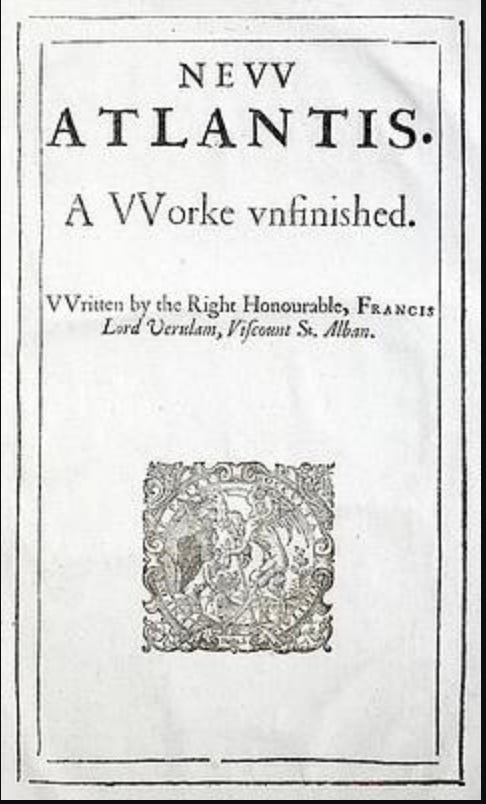


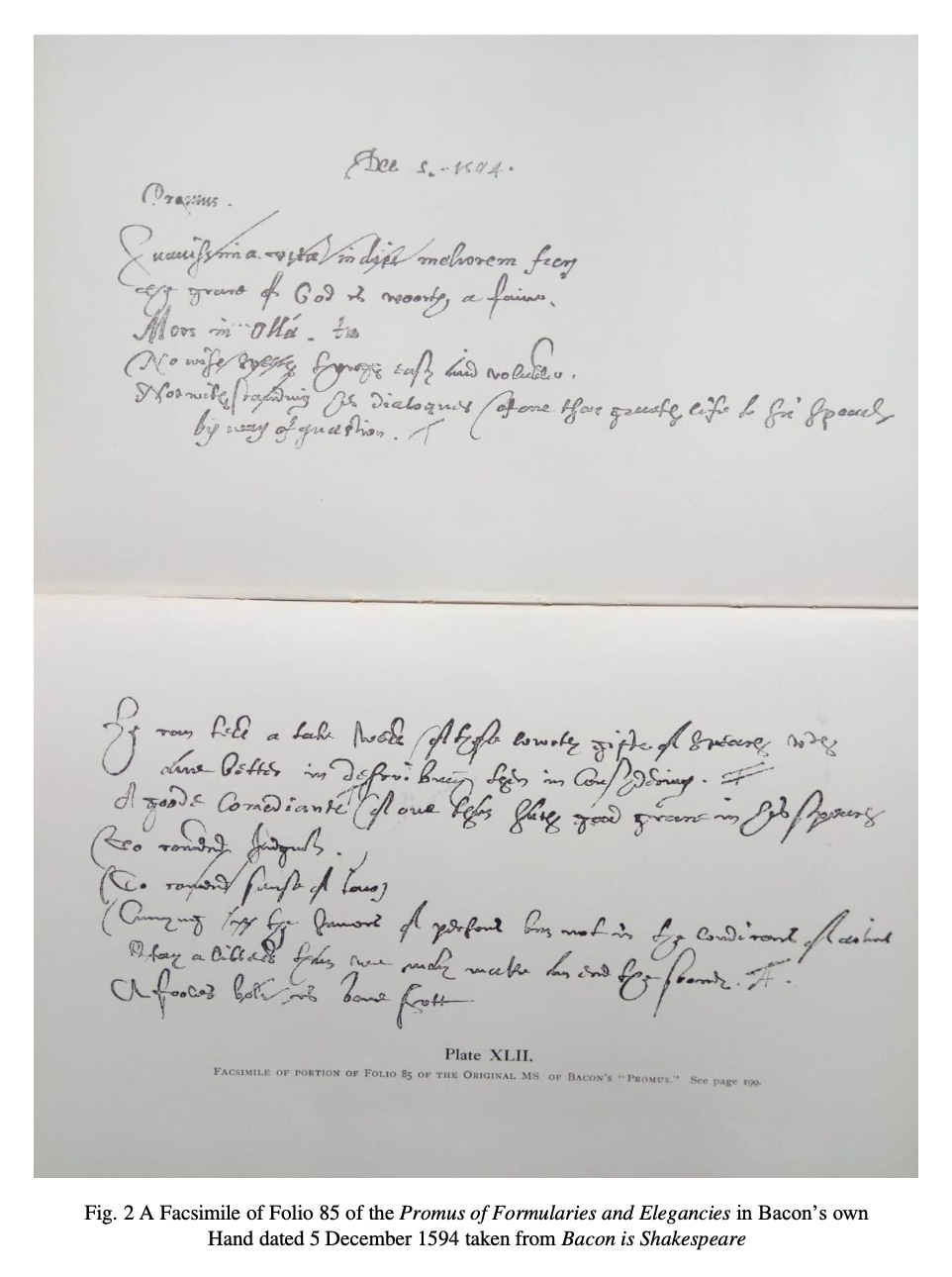



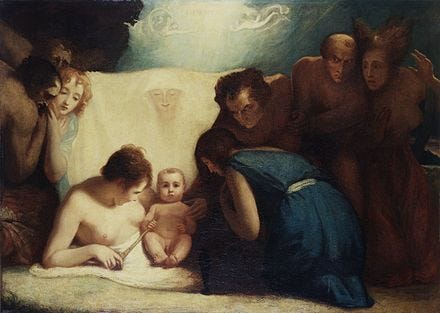
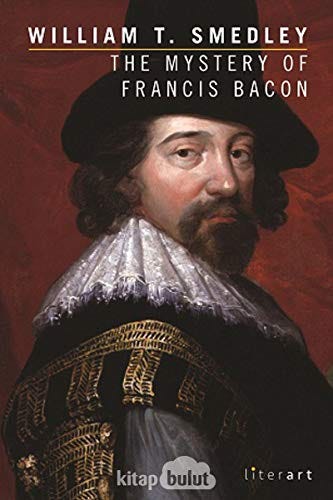
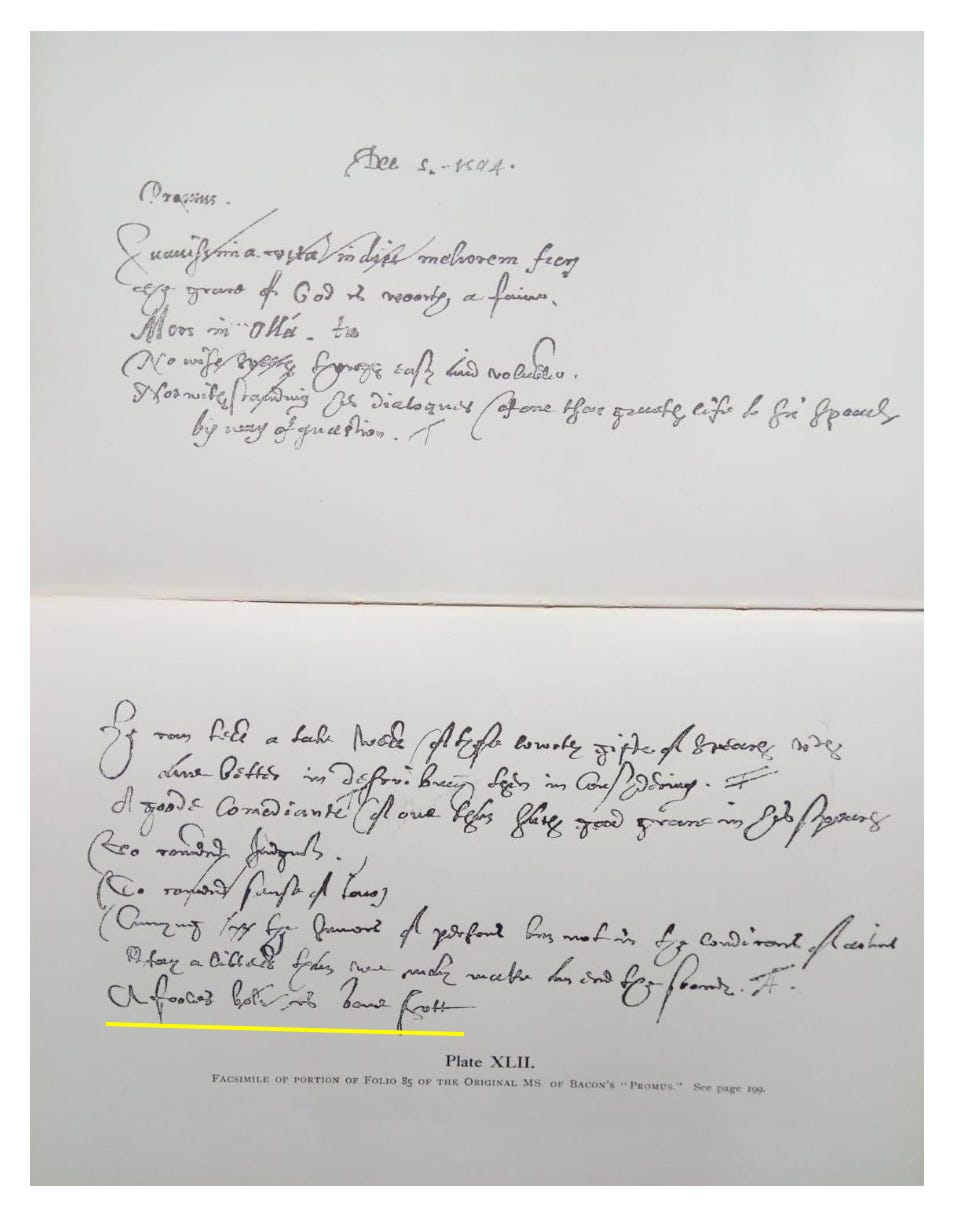
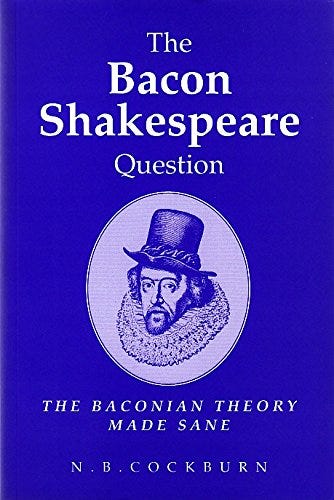

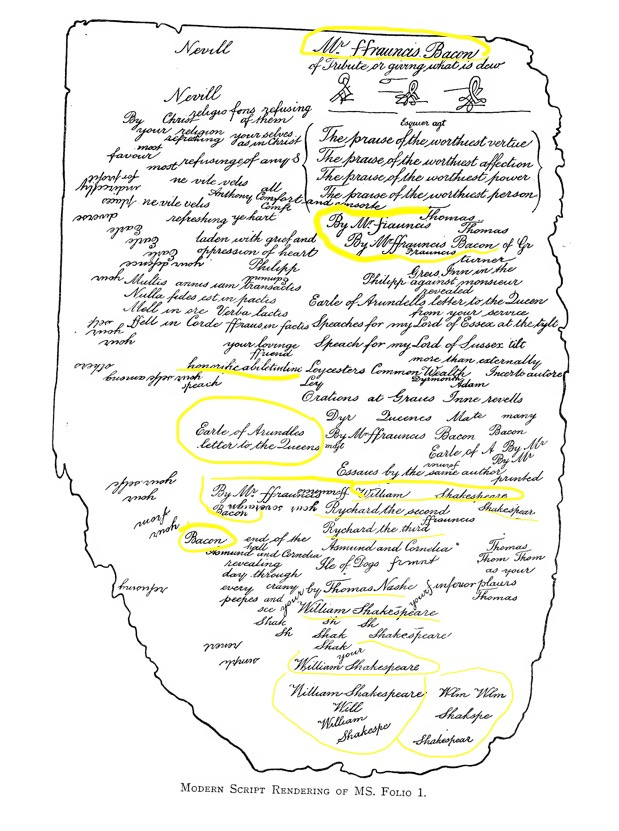
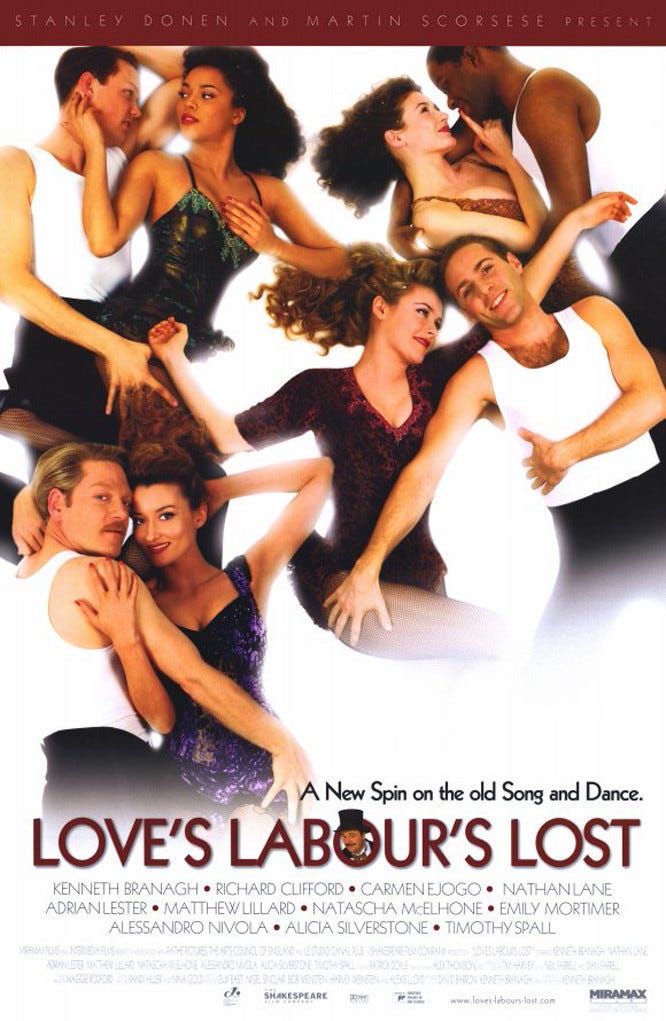



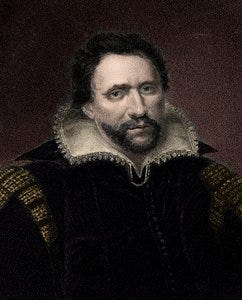
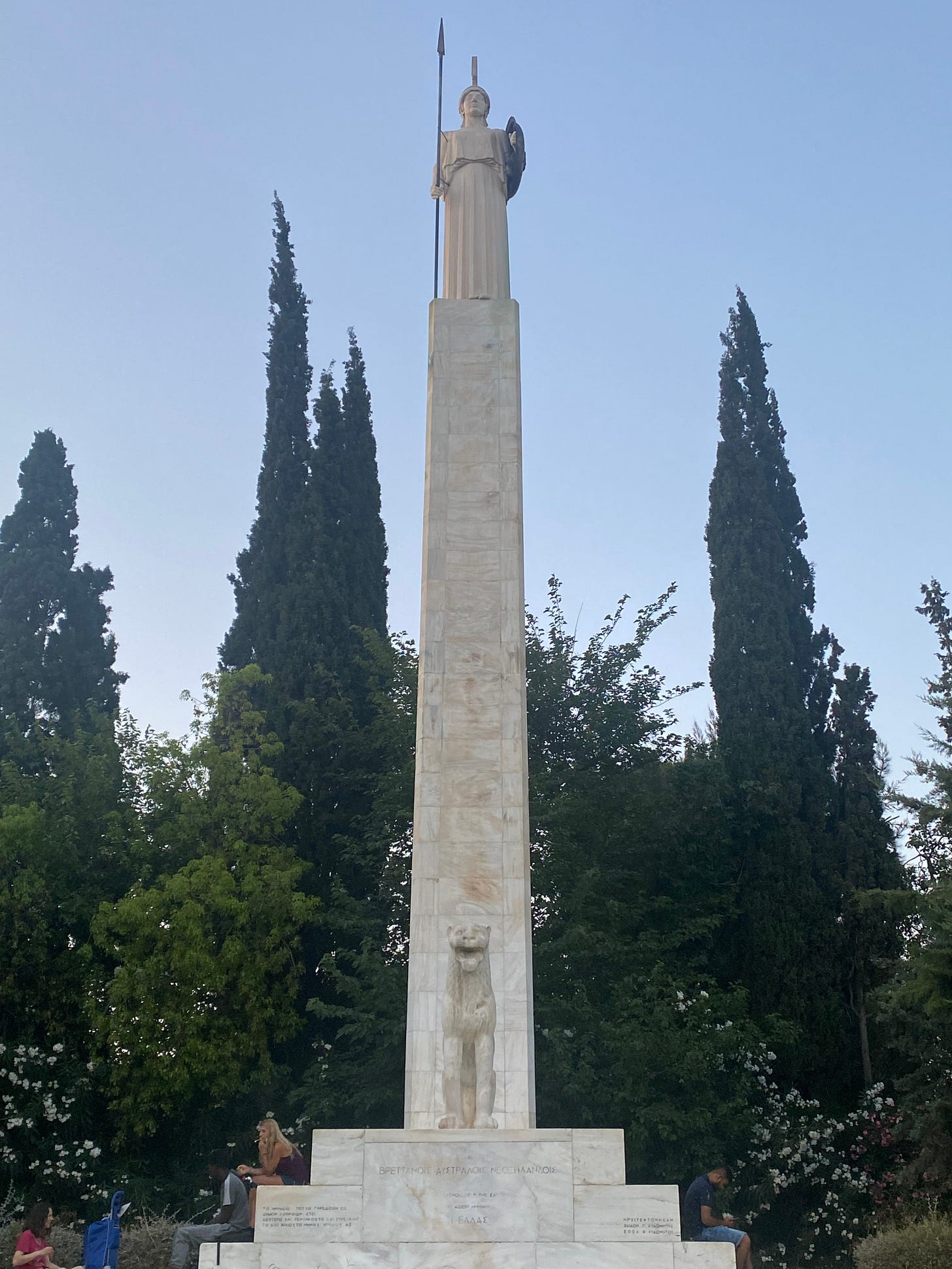
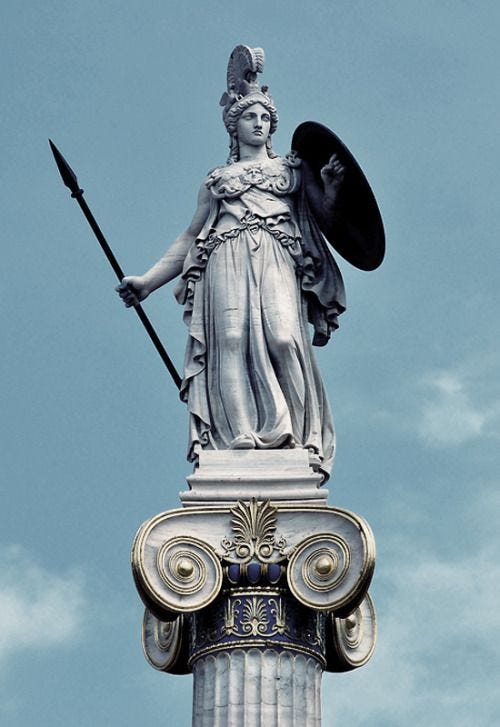

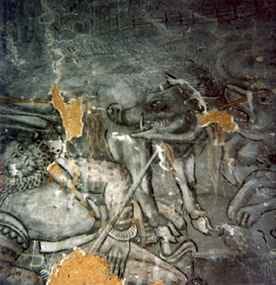

Did Bacon invent the book cypher?